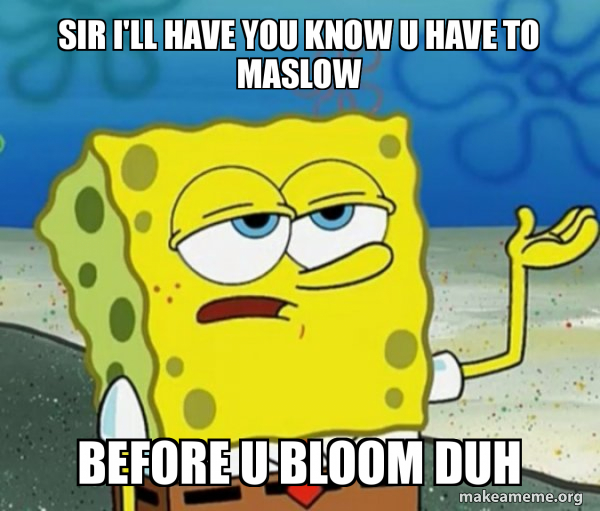
This fall everyone seems to be worried about “starting the year with SEL” before launching into their content or “Maslow before Bloom.” There is a renewed effort to make sure that teachers are developing relationships and connecting with their students. Teachers are working hard to figure out how to successfully build class culture in an online environment that can feel isolated. So many have used creative strategies to make this happen.
I am in full support of all of this effort because I believe strongly in the power of culture in the classroom. Yet I think that there are some misconceptions, particularly around what it means to focus and teach SEL.
Not either/or
What does the “A” in CASEL stand for? I’ll wait while you look it up.
The research is clear that SEL competencies are best learned integrated throughout the day, not as a separate activity or class.
SEL is meant to be taught infused with meaningful content. So teachers don’t need to compromise on content. SEL should be embedded into everything in the classroom. You can teach SEL skills and content at the same time. You can Maslow while you Bloom.
Students who develop strong SEL competencies will be more successful academically. These are the skills that employers are looking for, and that society needs to solve global and local issues with empathy and love. They will make students more successful learners and better humans.
Not SEL
Not sure everyone understands what SEL actually means. What many people are really starting off the school year with is building relationships and being aware of students’ emotional states. Teachers are noticing the moods of students and being responsive to the trauma students may be experiencing due to Covid, racial inequality, poverty, or remote learning in general. While this is important work that teachers should be doing now (and always), it is not the same as teaching SEL competencies.
When looking at the actual list of SEL competencies, you will notice that they go way beyond checking in on your students emotional well-being. That is a great starting point, but SEL encompasses so much more. The competencies are a complex set of tools students need for academic and social progress.
Not one week
Developing SEL skills in our students is not something that can be relegated to the first week of school and then checked off as done. It is something that must be prioritized for the entire school year. If you do meaningful activities to build relationships the first week and then week two shift into traditional, teacher dominated lessons focused entirely on content for the rest of the year, then that first week seems disingenuous.
- If you only work on building relationships week one and then emphasize content, then how will students develop Self-Awareness of who they are?
- If students are consistently passive listeners and never discuss your content in meaningful ways, then how will they forge Relationships Skills with each other?
- If students only watch lectures, fill out worksheets, and take traditional tests, then how will students sharpen Social Awareness by applying content to their world?
- If students only work through your lessons with no choices, then how will they build Self-Management by completing a project?
- If students only read the chapter and take notes, then how will they exercise Responsible Decision Making through inquiry of their questions about your class?
Relationships and community building take time. It can’t be “accomplished” the first week and then moved on. The first week should set the tone for what your class will be like for the rest of the year, not some kind of one-off fun time before “real” learning begins.
We need to intentionally teach, practice, and assess the SEL competencies all year long. This won’t happen unless teachers make it an intentional part of their lesson planning. When you start each unit or project, choose one SEL competency or sub-competency that you will focus on developing in your students. Explain to them what it means and how they will be practicing the skill during the unit. Have students reflect on the competency and how they are using it throughout the project. Only by intentionality will all students see substantial growth in SEL skills.
Maslow while you Bloom means daily checkins on the emotional state of all of your students while expecting them to engage in content at a deep level. Teaching SEL means daily emphasizing student growth in the competencies using inquiry structures such as PBL while learning standards applied in authentic ways. SEL isn’t for the first week of school, it’s the reason that we do school at all!
Let’s Connect
Questions? Interested in SEL and PBL workshops or consulting on remote learning? Connect with me at michaelkaechele.com or @mikekaechele.
